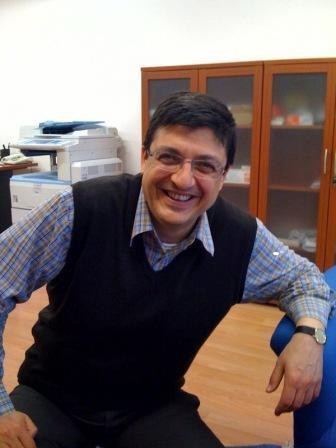Dr. Nesim K. Erkip
Bilkent University, Ankara
Tuesday, October 29, 2024
10.00am – 11.00am
Location: CII 3206
This presentation concentrates on single-item, single- location (call it firm) inventory models. In classical inventory models, demand is considered to be exogenous. For heterogeneous customer models, demand will be endogenous, as demand will be affected by the decisions of the firm. We present an approach to the modeling issues encountered in such systems. The steps of the general approach are briefly discussed. The steps are analysis of the customer demand, modeling of the utility function, modeling of the information available to the customers, modeling of the attributes, analysis of the aggregate demand function, and analysis of the firm's decisions and properties of the equilibrium. We demonstrate the approach with an example. We consider the standard EOQ model, allowing backorders. The heterogeneous customer version is assumed to have individuals affected by the maximum backorder time as a disutility. We end with revisiting the approach and presenting ideas to enhance the presented model. We conclude by discussing possible research directions in the area.
 Nesim K. Erkip is a professor of Industrial Engineering at Bilkent University, Ankara. He received his M.S. and Ph.D. from Stanford University and B.S. from Middle East Technical University (METU), Ankara. Before joining Bilkent University in 2005, he worked at METU for over 20 years. He held visiting and research positions at Cornell University, Stanford University, UC Berkeley, Eindhoven University of Technology, New York University, and the Technical University of Munich. He received international awards such as Senior Fulbright Scholar in the USA and August-Wilhelm Scheer Visiting Professorship from the Technical University of Munich, as well as national ones.
Nesim K. Erkip is a professor of Industrial Engineering at Bilkent University, Ankara. He received his M.S. and Ph.D. from Stanford University and B.S. from Middle East Technical University (METU), Ankara. Before joining Bilkent University in 2005, he worked at METU for over 20 years. He held visiting and research positions at Cornell University, Stanford University, UC Berkeley, Eindhoven University of Technology, New York University, and the Technical University of Munich. He received international awards such as Senior Fulbright Scholar in the USA and August-Wilhelm Scheer Visiting Professorship from the Technical University of Munich, as well as national ones.
His main research interests are in multi-echelon inventory theory, distribution systems, supply chains and retailing, and applications of OR. His publications include Management Science, Operations Research, Manufacturing & Service Operations Management, Production and Operations Management, OMEGA, EJOR, IISE Transactions, IJPE and Journal of Scheduling. He is the author or co-author of many reports and book chapters and mentored dozens of M.S. and Ph.D. students. Additionally, he has been involved in numerous consulting projects on supply chain management and other operations management topics with many companies.
He held several administrative positions in two different universities. He is a founding member of the Science and Technology Policy Studies Graduate Program at METU. He has been part of several initiatives preparing reports on “Science and Technology Policy” issues in Turkey during the 1990s. He has been involved in strategic planning activities for non-profit private and public higher education institutions and served as a member of the Board of Trustees of TED University for several years.
